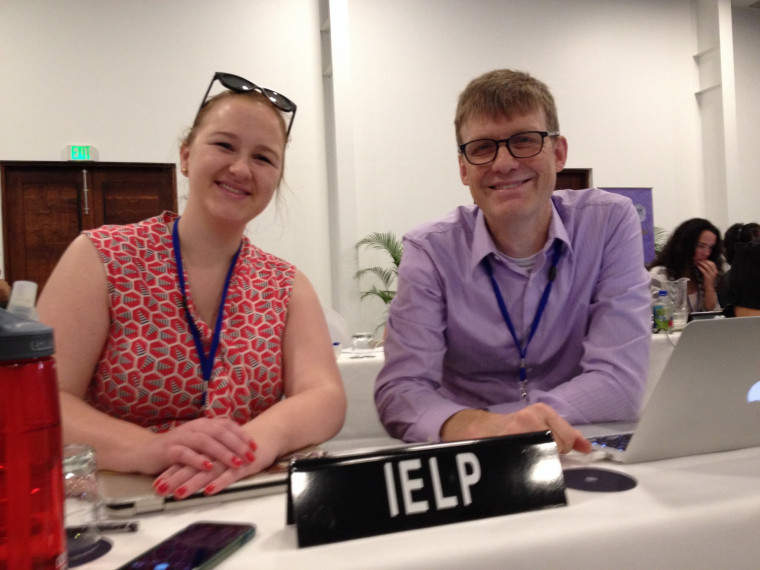IELP addressing important fisheries issues at Western and Central Pacific Fisheries meeting
Open gallery

Lewis & Clark Law School’s International Environmental Law Project (IELP) is in Fiji for the annual meeting of the Western and Central Pacific Fisheries Commission (WCPFC). Fishermen catch more than 55% of the world’s tuna in the area managed by the WCPFC, but the WCPFC is failing to properly manage tuna and shark stocks. In fact, Pacific bluefin tuna is now at 2.6% of historic biomass.
IELP Professor Chris Wold, and IELP clerk, Ashlyn White, are working with governments and nongovernmental organizations to ensure NGOs can participate in discussions on non-compliance, a serious issue in these fisheries, and reducing catches of sharks.
At an event hosted by the government of Fiji and the Secretariat of the Pacific Regional Environment Programme (SPREP), Professor Wold warned that continued failure to manage sharks would lead to prohibitions against all killing of sharks under the Convention on Migratory Species or restrictions on international trade in sharks under the Convention on International Trade in Endangered Species (CITES).
For more information on the WCPFC meeting click here
The International Environmental Law Project (IELP) works with governments, non-governmental organizations, and international institutions to develop, implement, and enforce international environmental law to tackle some of today’s most challenging global issues, including climate change, biodiversity conservation, oceans and fisheries and trade and the environment. IELP also trains and educates the next generation of international environmental advocates by providing students at Lewis & Clark Law School with opportunities to participate in international environmental law and policy.
More Environmental, Natural Resources, & Energy Law Stories
Environmental, Natural Resources, and Energy Law is located in Wood Hall on the Law Campus.
MSC: 51
email elaw@lclark.edu
voice 503-768-6649
Environmental, Natural Resources, and Energy Law
Lewis & Clark Law School
10101 S. Terwilliger Boulevard MSC 51
Portland OR 97219

